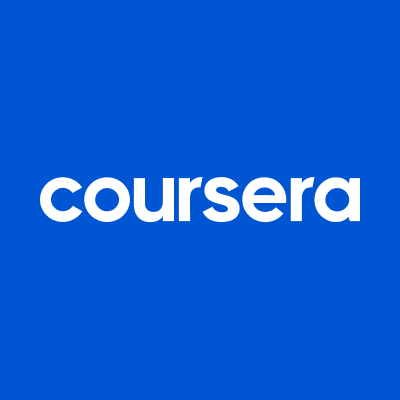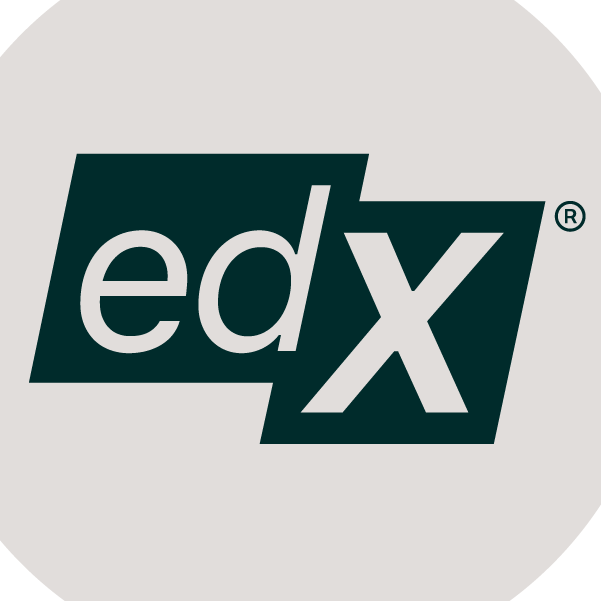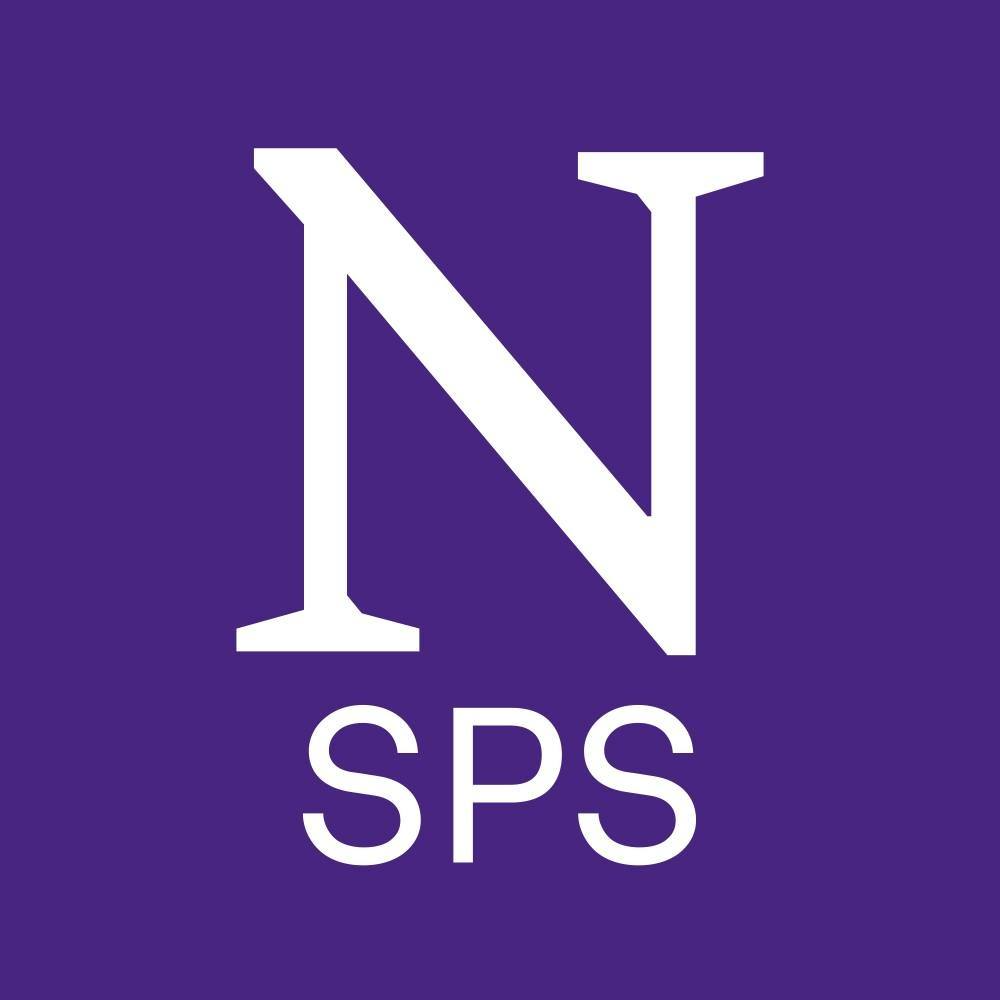- Online Accounting Orientation: Key Things to Consider
- Top 10 Best Online Accounting Courses 2023
- 1. Best Overall: Introduction to Finance, Accounting, Modeling and Valuation
- 2. Best for Beginners: Introduction to Finance and Accounting
- 3. Best Free: Accounting Essentials
- 4. Best Crash Course: Accounting in 60 Minutes – A Brief Introduction
- 5. Best for Excel: Excel Skills for Business Specialization
- 6. Best for Financial Statements: Understanding Financial Statements
- 7. Best for Certification: Fundamentals of Accounting
- 8. Best CPA Exam Review: CPA Exam Review by Becker
- 9. Best CPE: Financial Learning Library by Kaplan
- 10. Best on YouTube: Accounting for Beginners
- Online Accounting Course: FAQ
- Extra Credit: Essential Online Accounting Course Info
- Pick the Perfect Course and Start Studying
Whether you’re looking to learn accounting from scratch or you want to expand your expert skills, there’s an accounting course out there for you. What’s more, because accountants work exclusively on a computer, it’s possible to study entirely online: there’s no need to pencil in time to attend in-person classes or lectures.
However, there’s a bewildering array of potential options out there, most of which won’t be suitable for your specific situation. To help you wrap your head around online accounting courses and pinpoint the perfect choice for you, we’ve compiled this comprehensive guide.
In this post, we cover what to consider when shopping around for an online accounting course and review the top ten options on the market today. At the end, we discuss all the essential extra info you should know before studying accounting online.
Online Accounting Orientation: Key Things to Consider
Accounting is big business; every corporation and organization in America needs someone to keep tabs on their finances. With so much demand for qualified accountants, job opportunities abound in the field. Plus, not only is it relatively easy to snag a position, but the salaries are appealing for those with proven expertise.
But while there’s huge demand and lucrative salaries for accountants in America, the competition is fierce. Beginners will need to demonstrate they’ve got the know-how to succeed, and veteran accountants must keep studying to maintain their certifications.
Thus, it’s of utmost importance you choose the most appropriate accounting course for your needs. Keep the following factors in mind.
Focus
First and foremost, think about the focus when selecting an online accounting course. There’s no point enrolling in an advanced class if you’re dipping your toes into the field, nor a beginner-friendly module if you’re a seasoned pro.
Some courses focus exclusively on specific specializations—forensic accounting, tax accounting, public accounting, etc.—thus, they only appeal to a select few. Others are specially designed to fulfill Continuing Professional Education (CPE) requirements or help students cram for the Certified Public Accountant (CPA) exam.
Work out precisely what you need to learn and pick the most suitable course.
Pace
If you’re a busy professional with a hectic family life, you don’t have the time to study to a standard schedule. In this situation, a self-paced course would be ideal, as it lets you complete the content in your own time.
High school or college graduates, on the other hand, might have plenty of time to dedicate towards obtaining accounting expertise. While scheduled courses are rigid and require adherence to a strict timeframe, the benefit is they contain more in-depth information, which is perfect for those looking to learn the entire profession from scratch.
Certifications and Accreditations
A bachelor’s degree from a reputable university is a sure-fire way to get your foot into the accounting office door. Even though they cost a significant sum and take several years to complete, a college degree can convince an employer to take a rookie accountant seriously. Choose carefully, however, as not all online accounting degrees are worth the time and associated fees.
- Fundamentals of Accounting by Northwestern University is our top pick for tertiary-level study.
CPAs, on the other hand, must continue studying to keep their certification. The precise amount of study varies from position to position and state to state. In any case, the accountant needs to obtain a set number of CPE credits. Work out how many you need, and choose your course accordingly.
- The Financial Learning Library from Kaplan is our favorite CPE credit course.
Some learners won’t need any certifications or accreditation at all. Budding accountants studying for the CPA exam, for example, need only obtain the relevant knowledge and skills to pass the test. Entrepreneurs or project managers who need to do a modest amount of accounting work on the side also don’t need any formal qualifications from their course.
Cost
Online accounting courses are either free or involve a monthly (or one-off) fee.
Although free courses offer superb value for low-income learners, they don’t tend to contain as much content or detail as their premium counterparts. Nonetheless, free online accounting courses are still an excellent option when money is tight.
Paid courses, on the whole, contain a wide range of in-depth information presented in a polished, easily digestible manner. What’s more, they tend to be more targeted, letting you learn precisely what you need and nothing else. For the established accounting professional who’s already earning a respectable income, paid courses are usually the way to go.

Now that you’re up to speed, here’s our list of the top 10 online accounting courses on the market today. Each course has been thoroughly researched and classified; there’s an option here for everyone.
Top 10 Best Online Accounting Courses 2023
1. Best Overall: Introduction to Finance, Accounting, Modeling and Valuation
- 4.5 hours $149
- Course Highlights
- Balance sheets
- Cash flow analysis
- Valuation methodologies
Why we like it
This popular Udemy course is perfect for beginners and gives practicing accountants some much-needed CPE credits.
Who it’s for
The course is primarily intended for entrepreneurs dabbling in accounting and graduates/students who need extra help. Practicing accountants could use the course as an overall refresher and obtain a few NASBA CPE credits. No prior experience is required.
The Course
Choosing the best online accounting course overall is no easy feat; after all, rookie and veteran accountants have entirely unique learning objectives. But this widely popular offering manages to keep both camps happy, at least to a degree.
Award-wining MBA professor and passionate educator Chris Haroun is the brains behind this best-selling course on Udemy, which teaches budding accounting professionals everything they need to get started in the field. From financial modeling to discounted cash flows and economic analysis, the course gives rookie accountants the skills to succeed.
And for practicing professionals, it awards 6 NASBA CPE credits. All you need to do is watch all the videos and score 70% or more on the final exam.
Unlike many other online accounting courses, we love how much content variation you get here. Chris delivers 4.5 hours of engaging video lectures, 15 downloadable resources, and six informative articles in the program. That adds just enough variety to spice up the course and make it shine.
At the end, you’ll run a practice test to evaluate what you’ve learned. Score 70% or more, and you’ll earn an official Udemy certificate to prove your accounting chops.
On the downside, it hasn’t been updated since 2016 (not much has changed, though) and doesn’t expand beyond the basics.
Pros
- Covers all the essential info in one comprehensive course
- CPE credit is available for practicing accountants
- Certification is provided upon completion
- Run by a passionate professor with exceptional reviews
- Engaging multimedia format
Cons
- Hasn’t been updated in awhile
- Only contains beginner content
2. Best for Beginners: Introduction to Finance and Accounting
- 5 months at around 2 hours per week $79 per month
- Course Highlights
- Financial accounting
- Cash flow analysis
- Decision-making
Why we like it
It’s an in-depth introductory course run by a reputable U.S. university.
Who it’s for
This five-month Coursera course is perfect for entrepreneurs or managers who need to obtain a fundamental understanding of core accounting principles. Students can also use the content to fortify their existing expertise.
It’s suitable for beginners with a basic understanding of high school math. Corporate accounting is the core focus here.
The Course
Run by the well-regarded University of Pennsylvania (A.K.A. Penn), this exceptional introductory course covers the essential info you need to dip your toes into financial accounting. Course content includes investments in debt and equity securities, NPV and IRR, arbitrary cash flow streams, and cash flow classifications, among other things.
Although it’s a self-paced course, the recommended total completion time is five months, with students advised to dedicate at least two hours per day. That’s longer (and more in-depth) than most introductory options, so give this one a miss if you want a lightning-quick crash course.
Throughout the course, you’ll cover content across a wide array of formats, from quizzes to video lectures, assignments, and Excel spreadsheets. Students can post questions on the course forum and discuss concepts with tutors and their peers.
You also get a shiny Coursera certificate upon finishing to add to your C.V. However, note that no CPE credits are available on this one.
Pros
- Comprehensive, beginner-friendly course
- Only requires high school-level math
- Wide variety of content
- Comes from an esteemed university
- Access to a Q&A forum
Cons
- Five-month duration might be too long for some learners
- Requires significant monthly investment
- No CPE credits
3. Best Free: Accounting Essentials
- 6 weeks at 3-5 hours per week Free (certificate requires a fee of $79)
- Course Highlights
- Short-term and long-term decision making
- Income statements and balance sheets
- Basic accounting principals
Why we like it
You get a superb introductory course on accounting fundamentals without paying a dime.
Who it’s for
This course is specially designed for managers and entrepreneurs who’d like to obtain a basic understanding of accounting without specializing in the field. Struggling MBA students would also benefit from the content.
A reasonable understanding of high school-level math is required.
The Course
Brought to you by the Imperial Business College of London, this outstanding six-week introductory course is among the most sought-after options on edX. As is standard on the platform, students can enroll in the class and work through the content for free. Payment is only required should you desire a certificate to include in your C.V.; plus, paying customers get edX support and other premium benefits.
You’ll learn how to interpret three fundamental accounting statements (income statements, balance sheets, and cash flow statements). The program also outlines the critical differences between management and corporate accounting and explains how financial information can underpin strategic business decisions.
There isn’t a lot of advanced content to be found, so look elsewhere if you’re already familiar with the field. Nonetheless, its comprehensive curriculum and easy-to-digest content make this the best free introductory accounting course on the web.
Although the certificate attracts a fee, it’s a relatively modest amount and is a worthy investment for most would-be professionals.
Pros
- Free edX course
- Covers all the essentials
- Easy to follow content
- Comes from a reputable institute
Cons
- Payment required for the certificate
- No advanced content
4. Best Crash Course: Accounting in 60 Minutes – A Brief Introduction
- One hour $29
- Course Highlights
- Why profit doesn’t equal cash
- Balance sheets and income statements
- Debits and credits
Why we like it
This ultra-concise crash course gives time-poor students a basic introduction in just 60 minutes.
Who it’s for
Time-poor managers and entrepreneurs would benefit most from this super-quick crash course, which delivers fundamental info at breakneck speed. It’s also a viable option for accounting or MBA students seeking extra help.
The Course
A hugely successful offering on Udemy, this fast and furious crash course has earned a stellar reputation for explaining complex accounting concepts in a simple-to-understand manner.
While other introductory courses may confuse newbie accountants, this succinct course uses real-world analogies to simplify concepts. And that’s the secret to how it can cover the basics in just one short hour.
To complement the 60 minutes of video tuition, the course includes ten downloadable resources and a final exam. Of course, you can only learn so much in one hour, so the scope of this option is somewhat limited.
Although it’s not intended for practicing accountants, the course does award 2 NASBA CPE credits. If you only need two credits to hit your yearly target, this could be the quickest and cheapest way to obtain them.
Pros
- Fast crash course for time-poor learners
- Covers all the basic accounting concepts
- Includes downloadable resources and a test
- Cost-effective option
- Gives 2 NASBA CPE credits
Cons
- A bit too brief for some learners
5. Best for Excel: Excel Skills for Business Specialization
- 6 months at around 5 hours per week $79 per month Coursera fee
- Course Highlights
- Excel skills for business
- Automating tasks
- Using spreadsheets to forecast data
Why we like it
This brilliant Coursera option teaches you how to master the most powerful accounting tool on earth: Microsoft Excel.
Who it’s for
This in-depth offering is ideal for practicing accountants looking to elevate their Excel game. College-level accounting students could also benefit from the content, especially if they feel lost when using the tool.
The Course
While accountants have a wide range of number-crunching software applications at their fingertips, none are as potent as Microsoft Excel. This powerhouse platform can perform a multitude of accounting tasks, from managing datasets to forecasting finances and extracting essential information.
Sadly, though, most accountants don’t quite know how to use the tool to its full potential. And that’s precisely where this comprehensive self-paced course comes in: you’ll learn to work your way around Excel like a pro.
The program starts with a beginner-friendly component but quickly transitions into the nitty-gritty details. You’ll work through advanced features like pivot tables, conditional logic, formulas, modeling, forecasting, and errors.
The advanced course spans around six months and can be tough going at times. As a result, we don’t recommend beginners enroll in this one.
Nonetheless, if you’re only interested in the basics, you could always just sign up for the first module and then drop out once you’re done. That way, you won’t have to pay for the entire six months.
The course comes courtesy of the University of Macquire, a well-regarded Australian college. As is standard on Coursera, you can audit the course for free, but the entire program and certificate require paying a monthly fee.
Pros
- Covers advanced Excel skills
- Includes some beginner content
- Self-paced for flexible learning
- Comes from a prestigious university
Cons
- Too advanced for many students
- Long course completion time
6. Best for Financial Statements: Understanding Financial Statements
- 46 minutes of video lessons $8 per month
- Course Highlights
- Accrual accounting vs. cash accounting
- Balancing financial statements
- Topline revenue calculations
Why we like it
This highly targeted Skillshare course gives you a thorough rundown of financial statement fundamentals.
Who it’s for
As the course focuses on financial statements, it’s primarily targeted at business owners and general managers who need to wrap their heads around the fundamental concepts. Rookie and seasoned accountants or current college students with a skill gap would also find the content useful.
As a beginner-friendly course, you don’t need existing accounting experience to benefit from the content.
The Course
Run by Skillshare’s very own CEO, this superb 46-minute video course gives you a comprehensive rundown on the ins and outs of financial statements.
Within the program, you’ll learn about balance sheets, calculating topline revenue, accrual vs. cash, and cash flow, which is perfect for business owners, entrepreneurs, and managers who lack these crucial accounting skills.
We love how the course offers a solid hands-on component, with mock financial statements for you to fill in as a practice run. This useful Excel exercise lets you tweak financial statements, test revenue lines, and explore how assets and liabilities affect cash flow. It’s designed to be completed in conjunction with the videos, letting the learner obtain firsthand experience to complement the theory.
Note that this course won’t discuss other accounting concepts. It’s a highly targeted option that’s only suitable for enhancing your financial statement expertise.
Pros
- Highly targeted course
- Includes video and hands-on exercises
- Cost-effective
- Quick to complete
Cons
- Doesn’t cover other accounting practices
7. Best for Certification: Fundamentals of Accounting
- Approximately 12 months $8,716 (all four classes)
- Course Highlights
- Financial/managerial accounting
- Income tax
- Forensic accounting
Why we like it
This is the most comprehensive and reputable online accounting course for graduates looking to transition into the field.
Who it’s for
This online diploma from the highly-regarded Northwestern University is specifically targeted at graduates, including business professionals, who would like to transition into a fully-fledged accounting role. Anyone with a bachelor’s degree (in any subject) can enroll and start studying towards a brand spanking new accounting degree.
Students can later enroll in the university’s Advanced Accounting Certificate course, which is also provided entirely online. Upon completing that, the student may be eligible to sit for the CPA exam (precise requirements vary from state to state).
The Course
Only a handful of American colleges offer an accounting certification course online, and this option from Northwestern University is the pick of the bunch. The well-established university has been teaching at the tertiary level since 1850, earning a strong reputation for excellence.
The comprehensive course spans four semesters, which take about 12 months in total if tackled full time. Learning isn’t self-paced, so you’ll need to keep a close eye on your deadlines and ensure you submit all assignments on time.
As it’s a proper university degree, the fees here are much higher than other options on our list, but so is the associated prestige. Unfortunately, there’s no financial assistance available, so you’ll need to fork out the fees upfront or apply for a loan.
It’s a long hard slog involving a significant financial investment. Nonetheless, it’s well worth it for anyone who is serious about kick starting a dedicated accounting career.
Pros
- Provided by a reputable university
- Students can work towards CPA accreditation
- Available entirely online
Cons
- Requires 12 months of in-depth study
- Fees on par with in-person universities
8. Best CPA Exam Review: CPA Exam Review by Becker
- 31 hours of lectures, plus questions, quizzes, and videos $2,399 to $3,499
- Course Highlights
- 1,250 digital/printed flashcards
- 400 SkillMaster videos
- 12 simulated exams
Why we like it
Becker is a big name in CPA exam prep, and this sensational review course is the best money can buy.
Who it’s for
This fantastic CPA exam review course from Becker is great for high-income learners preparing to sit the exam. Both college graduates and business professionals can benefit from the content.
The Course
Every accountant knows the CPA is a doozy of an exam. With hundreds of multiple-choice questions, several in-depth essay-style components, and tricky real-world task simulations, the grueling 16-hour test requires intense preparation to pass.
Although various companies offer CPA exam review courses, Becker sells the best of the bunch. The four-part system is all-encompassing, with dozens of hours of content to complete. From flashcards to SkillMaster videos and simulated exams to one-on-one support, it spans numerous content mediums to deliver optimal results.
Almost all U.S. accounting firms, including the Big 4, use Becker to prep staff for the CPA exam; therefore, you know it must be good.
One thing we love about Becker is how up-to-date the program is; the content gets refreshed every year as accounting best practices change. And although it can appear somewhat daunting at first, an easy-to-use study planner lets you break down the program into smaller, more manageable chunks. Once your brain hits a brick wall, you can even try your hand at the Accounting for Empires video game. Spoiler alert: it’s a hoot.
Becker provides proficiency scores for every module to help you track your progress, and you get task-based simulations to complement the videos.
There is one major drawback, though: the cost. Coming at a couple of grand for the cheapest option, it’s simply not financially viable for many CPA examinees. But if you do happen to be in a position to afford it, you won’t find better elsewhere.
On the bright side, Becker does offer a tempting flexible payment plan. You also get to choose from three different tiers, which lets you forgo components you think you won’t need.
Pros
- Multimedia format
- Expansive four-part course
- Big-name brand
- Proficiency scores to track progress
Cons
- Expensive
9. Best CPE: Financial Learning Library by Kaplan
- Multiple courses available $499
- Course Highlights
- Information technology
- Business management and organization
- Management decision making
Why we like it
For a one-time fee, you get access to Kaplan’s extensive learning library so you can earn all the CPE credit you need in your own time.
Who it’s for
Kaplan’s coveted financial learning library is exclusively aimed at practicing CPAs who need CPE credit to hang onto their accreditations. Don’t bother with this one if you haven’t yet passed the CPA exam.
The Course
Practicing CPAs are always on the hunt for relevant and cost-effective courses that provide sufficient CPE credit. Identifying an appropriate option can be a time-consuming chore, and purchasing them individually sometimes isn’t the cheapest approach.
And that’s where the Kaplan Financial Learning Library shines. You get unrestricted access to hundreds of CPE accredited courses, covering everything from accounting to auditing and tax. Simply select the option you feel would benefit you most and start studying. Each course typically includes a mix of video lectures, practice exercises, and sample tests.
As one of the most prominent educators in America, Kaplan has earned a strong reputation over the years; rest assured the content will be engaging and up-to-date.
Another strong point is content variation, which ranges from beginner-friendly to advanced. No matter what stage of your accounting career you’re in, you’ll find a relevant course somewhere in this all-encompassing package.
But as superb as the library is, it doesn’t come cheap. You’ll need to fork out $500 per year for the entire thing. Sadly, there’s no option to purchase the courses you need individually.
Pros
- Large library with a variety of courses
- One-stop-shop for CPE accreditation
- Comes from a big, trusted brand
- Courses to suit accountants of all levels
Cons
- No option to purchase individual courses
- Rather expensive
10. Best on YouTube: Accounting for Beginners
- 26 videos Free
- Course Highlights
- Accounting equations
- Income statements
- Depreciating assets
Why we like it
This 26-part introductory course teaches a wide array of skills for free.
Who it’s for
Beginner accountants looking to learn the ropes without paying any fees would get plenty from this course. It’s also handy for cash-strapped college students who want an alternative explanation about a specific accounting concept.
The Course
Run by a verified CPA tutor and YouTube superstar, this 26-part accounting course is the most sought-after option on YouTube. Within it, you’ll get a comprehensive introduction to accounting, including concepts like fifo and lifo inventory, cash journal entries, and accounts receivables.
The tutor, who goes by the handle of CPA Strength, has earned almost 200k subscribers for his informative and easy-to-follow approach.
In case you’re not aware, the YouTube platform is entirely free (you’ll only need to watch the occasional ad). On the downside, there’s no certification whatsoever, so potential employers won’t know you’ve completed the course.
Pros
- Completely free
- 26 targeted episodes
- Easy to follow
- Informative content
- Qualified CPA tutor
Cons
- No certification
Online Accounting Course: FAQ
If you’ve still got questions about online accounting courses, then check out the following FAQ.
As the name suggests, it’s an accounting course you undertake entirely online. That means you won’t have to attend any in-person classes, and you can work through the content from the comfort of your own home. Most online accounting courses are self-paced, which lets you study at a time that’s most convenient for you.
Learning accounting online is common these days, and there is a wide array of competing courses out there to choose from. We’ve reviewed the top ten options in this post.
Although you don’t need to be a math prodigy to succeed in accounting, you will need some degree of expertise. At the very least, aim to have a solid understanding of fractions, decimals, percentages, order of operations, ratios, and exponents. Basic familiarity with algebra can help.
The four main types of accounting are as follows:
- Corporate Accounting: The accountant works exclusively for a specific firm, handling and filing its financial data for tax compliance and internal/external reporting.
- Public Accounting: The accountant serves an external client—either individuals or organizations—by ensuring the accuracy of their filings, records, and financial statements.
- Government Accounting: The accountant undertakes audits and evaluates financial resources for governments at the local, state, or federal level.
- Forensic Accounting: The accountant recovers financial data in situations where it is difficult to obtain.
Although the ideal online accounting course depends on your specific situation, we rate Introduction to Finance, Accounting, Modeling and Valuation (Udemy) as the best offering overall. The course offers stacks of actionable information for beginners and grants seasoned accountants some much-needed CPE credit points.
Freelancers and small businesses tend to use QuickBooks to perform their everyday accounting tasks. Large enterprises, on the other hand, usually opt for Tally, which offers more advanced features. Microsoft Excel is an essential tool across multiple accounting types.
Bookkeepers keep track of a company’s everyday transactions, such as purchases, sales, and payroll. While accountants perform some bookkeeping tasks, they’re often more focused on analyzing data and finding solutions. The accountant ultimately aims to provide clients (or company executives) with data to inform high-level decision-making.
Extra Credit: Essential Online Accounting Course Info

Before you round down your favorite option on our list, it’s worth understanding the accounting profession and how to study it online. In this section, we cover the crucial background details and provide an FAQ.
The Skills You Need to Succeed in Accounting
There’s a common misconception that, as number crunchers, mathematics is the key skill an accountant uses in their day-to-day work life. But while arithmetic is vital for any number-based position, there’s much more to the role than math.
Communication Skills
An accountant must regularly relay reports and financial data to company executives, so it’s essential to develop strong communication skills. You’ll need to be confident at presenting your findings in person, through one-on-one meetings, and, perhaps at times, large company-wide presentations.
Spreadsheets Skills
Although numerous accounting tools are available, most seasoned accountants use the humble spreadsheet (typically Microsoft Excel) to analyze numbers and prepare reports. If you’re not up to speed on your Excel skills, opt for a course that teaches you how to interlink information and define specific formula types.
Problem Solving & Critical Thinking
Accounting is very much an analytical profession; thus, it’s crucial to hone your critical thinking and problem-solving skills. Everyday tasks typically involve analyzing a dataset and reaching an effective, verifiable solution.
Organizational Skills
Accountants frequently find themselves tackling multiple tasks at once, so you’ll need to be well-organized in your work life. Strong organizational skills are essential for juggling competing deadlines and delivering your findings promptly.
Discretion
As accountants deal with confidential information—whether that be individual income statements or private company data—in their day-to-day lives, discretion is crucial to success. The accountant must learn to keep the details discreet and avoid inadvertently sharing sensitive information.
Ethics
Ethics are an essential component of accounting. A CPA is expected to be loyal to society rather than their company. As a result, the accountant mustn’t knowingly break the law, even if their employer asks them to.
Who Should Take an Online Accounting Course?
Whether you’re a budding newcomer to the field, a multi-talented entrepreneur, or a seasoned industry pro, an online accounting course can help you solidify your skills. Let’s look at the specific situations where studying accounting online will be worth your time.
College Students After Extra Help
While some reputable colleges offer accounting degrees entirely online, many students prefer to study in-person to obtain their bachelor’s degree. If you’ve been progressing through your degree but feel you could use some additional help, then an online course might provide the assistance you need.
Say, for example, you need extra help with a specific task such as creating pivot tables on Excel, then you could enroll in the relevant course to hone your skills.
College Graduates Seeking a Career Change
If you obtained a bachelor’s degree in a separate field but recently decided to move into accounting, the good news is you can get your new qualifications online. Some well-regarded colleges offer accounting certifications for graduates, meaning you don’t have to start the whole college process all over again.
Students Preparing for the CPA Exam
We won’t sugar coat it: the CPA Exam is a grueling ordeal. The notorious four-part test features hundreds of questions, from quick multiple-choice answers to task simulations and in-depth essays. In total, it takes about 16 hours to complete, typically spread over four nerve-wracking days.
Only around 50% of examinees pass the first time. To increase your chance of success, it’s worth taking an online CPA exam prep course.
Small Business Owners & Entrepreneurs
Even the tiniest business needs an accountant, but small start-ups usually don’t have the funds to employ professional help. However, for a small business to get off the ground, you don’t need a qualified accountant on hand.
Instead, a small business owner can enroll in an online accounting course to learn the basics and cover this crucial part of the business themselves. Because you don’t need to qualify as a CPA, there’s no need to take a comprehensive course offering accreditation.
Financial Managers
Project and finance managers in small to medium businesses (SMBs) must often perform various accounting tasks as part of their role. If you’ve recently transferred into such a position and you’re worried you don’t have the requisite know-how, an online accounting course can help close the skill gap.
Professional Accountants
Most practicing accountants are legally obliged to continue studying to maintain their formal certifications. Professional accountants need to obtain a certain amount of CPE credit points each year, and an online course allows them to do so in their own time.
Pick the Perfect Course and Start Studying
We’ve reviewed the top 10 accounting courses available on the internet today and provided some in-depth info on how to pinpoint the perfect option for you. All that’s left to do now is find the most suitable course from our list and start studying today.
Before you know it, you’ll be crunching the sums and balancing the books like a pro. Good luck.









